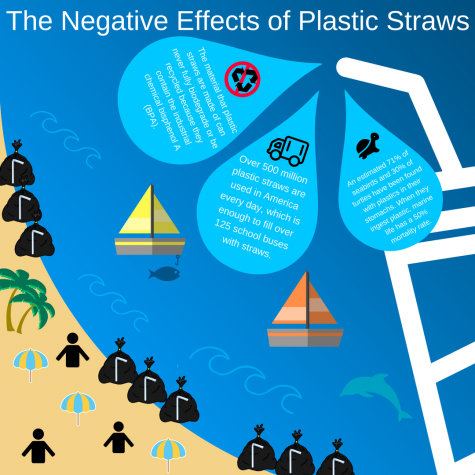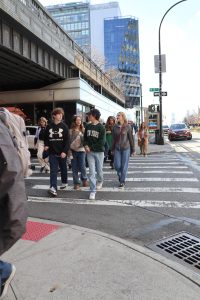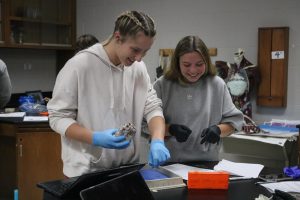The Laundry restaurant replaces plastic straws
March 12, 2018
In the USA alone 500 million straws are used every single day, which is enough to fill over 125 school buses, according to the National Park Service. Disposable straws are almost always made from plastic and never fully breaks down after being thrown away. This caused The Laundry restaurant to switch to a paper “straws on demand” program on Dec. 1 2017.
“About five or six months ago I saw a video posted on Facebook, about 150 restaurants in Seattle went straw-less; the video also contained astonishing facts about how many straws Americans use in a day,” server at The Laundry, Megan Harriman said. “I recently went on my first cruise and saw firsthand that trash in the ocean is real and how sad it is. The time for change is now, the facts about plastics were a true eye opener for me. Any small or large steps we can take make a difference.”
Harriman was the one who originally brought the idea of going straw-less to The Laundry. She, as well as the owners of The Laundry, were upset to hear statistics such as an estimated 71 percent of seabirds and 30 percent of turtles have been found with plastics in their stomachs. When they ingest plastic, marine life has a 50% mortality rate, according to strawlessocean.org.
“We first looked into plastic straws that were recyclable but found that many of them fall through the machines that recycle and end up in the ocean,” co-owner of The Laundry, Chad Brennan said. “Next we looked into going 100 percent straw-less, but were sensitive to the fact that some of our customers wanted a straw and that certain cocktails almost demand a straw. Finally we came across a really great paper straw made by Aardvark and one of our suppliers agreed to stock them for us.”
“Straws on demand” simply means that if a customer wants a straw, they must ask for one. It is important to minimize plastic straw usage because as time passes the material that these plastic straws are made of can never fully biodegrade or be recycled because they contain the industrial chemical bisphenol A (BPA).
“The benefits of this program have been extremely positive so far,” Brennan said. “First off, we found that most people don’t want or need a straw; they simply take one because it has always been offered. Once customers learned how bad they are for the environment, they were happy to go straw-less. The Laundry has always looked for ways we can be environmentally friendly. It is the first of our family of businesses to do away with straws, but we intend to implement the ‘straws on demand’ policy in all of them in the coming weeks.”
If a customer must have a straw, then the ones offered at The Laundry are paper straws from a company named Aardvark. All of their products are 100 percent made in the USA, decompose within 30-60 days and are customizable.
“Although the response has been overwhelmingly positive, both from customers and staff, there are always a few naysayers.” co-owner of The Laundry, Mark Hamel said. “One customer felt we were pushing our environmental views on to our them, and they essentially didn’t like being lectured on the environment while dining out.”
The Laundry is hoping that all counterparts in restaurant industry in Fenton will see the value of a offering a similar program and implement their own version in their restaurants.








